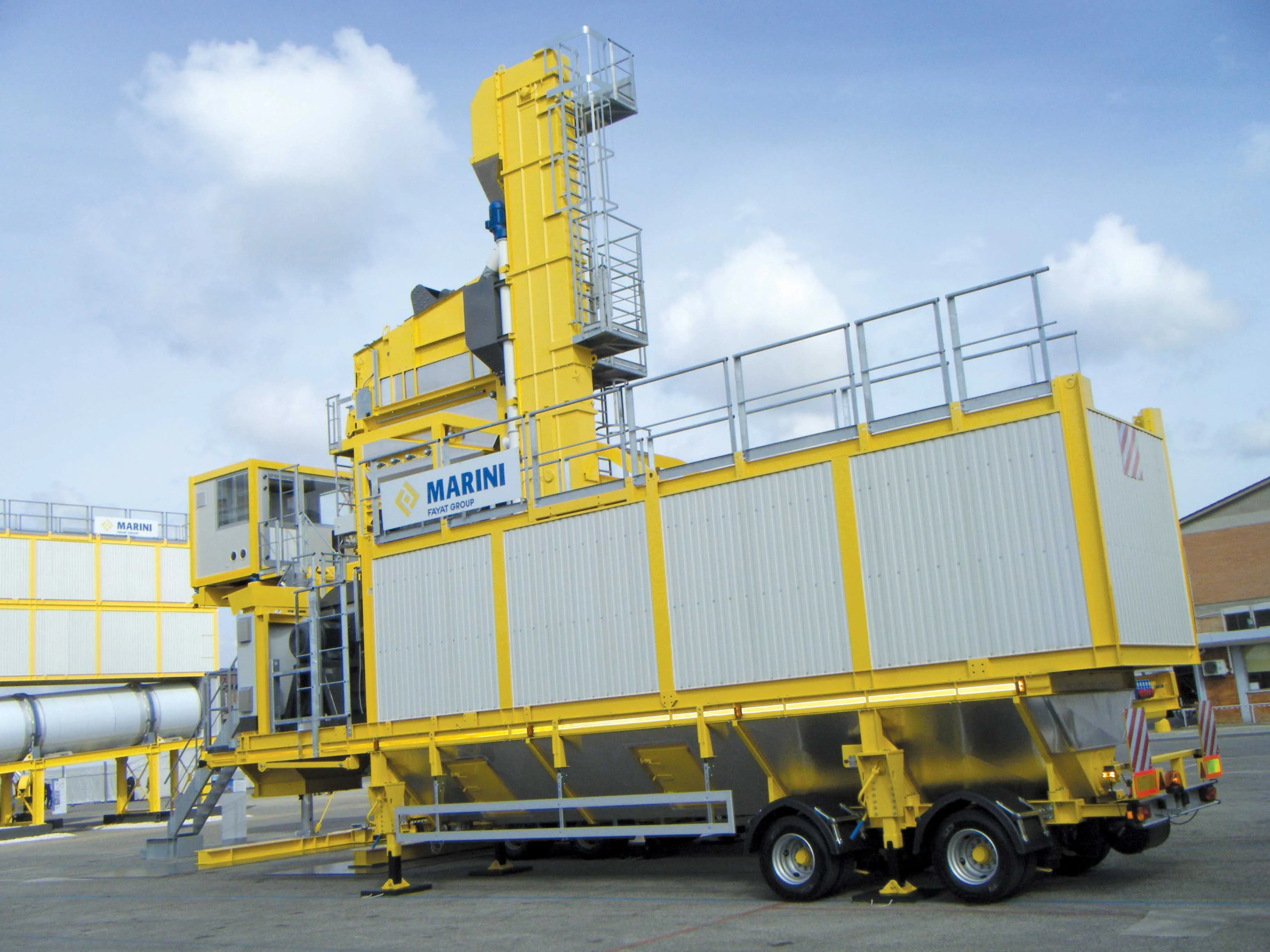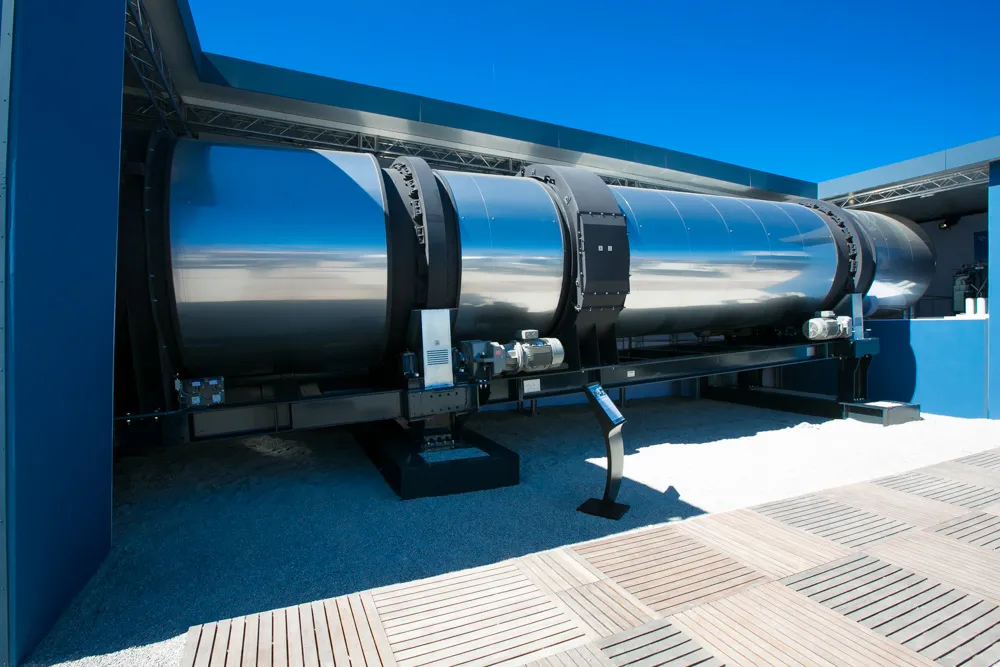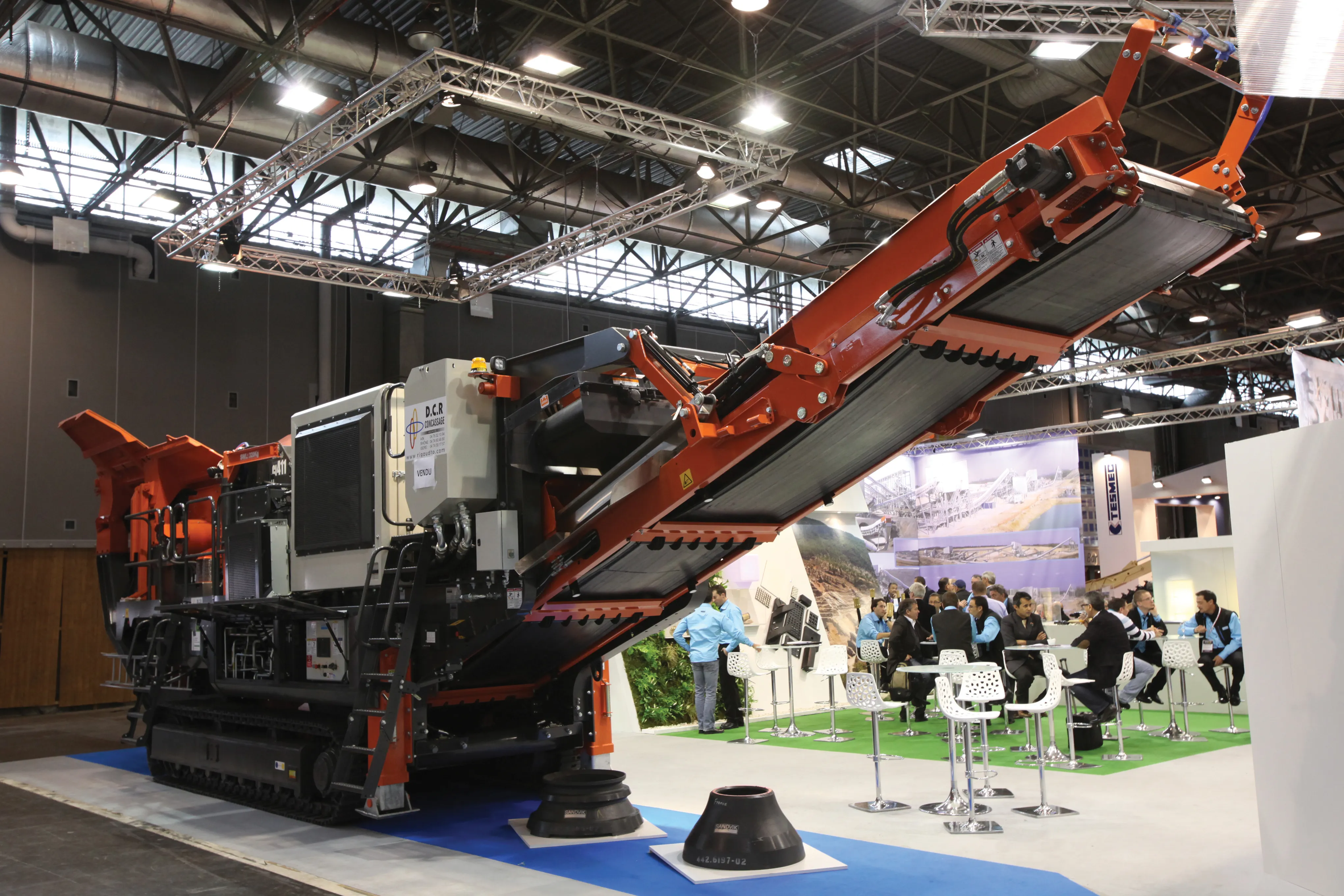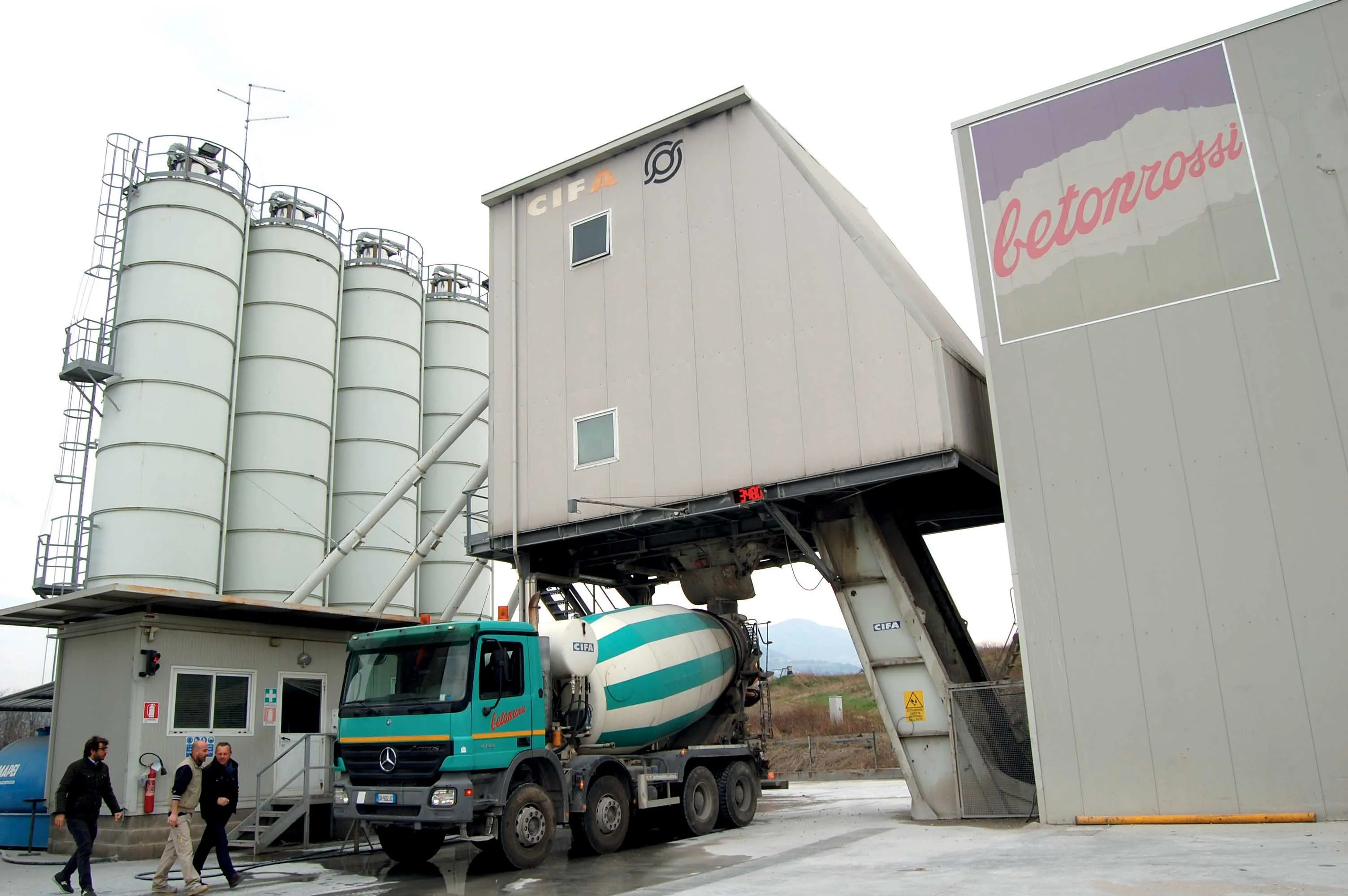Marini is offering a versatile new asphalt plant targeted at emerging markets – Mike Woof writes
A new asphalt plant from Marini has been developed specifically for the needs of customers in developing countries. The company says that this is a high-quality asphalt plant but without the sophisticated technology required in developed markets such as Europe. The versatile BE Tower is designed to be easy to transport, install and then take apart and move to a different site when needed. The company has also
January 4, 2016
Read time: 6 mins

Marini is offering a versatile new asphalt plant targeted at emerging markets – Mike Woof writes
A new asphalt plant from273 Marini has been developed specifically for the needs of customers in developing countries. The company says that this is a high-quality asphalt plant but without the sophisticated technology required in developed markets such as Europe. The versatile BE Tower is designed to be easy to transport, install and then take apart and move to a different site when needed.
The company has also developed the XPRESS plant, which is designed for high mobility and can be set up and ready to work in a short space of time.
Head of product marketing Marzio Ferrini explained, “We cannot only focus on the mature markets. Some countries do not need a sophisticated solution. We have concentrated on simplicity.”
He said that the BE Tower plant is quick to erect and commission, “You need just compacted soil for the base and you can put it into operation. We don’t need much space on the ground.”
Each of the units for the BE Tower is mounted on a steel base and can sit directly on the area that has been compacted. The BE plant is modular in design and can be transported in 15 container loads, with a compact layout also meaning it is easy and inexpensive to move from site to site. The modular layout and the use of standard shipping containers for each section of the plant helps reduce set up times when the plant arrives on site.
According to Ferrini, the transport costs for the BE are just 30-40% of the firm’s earlier Ultima plant, due to the fact that the various modules slot into standard containers. He added, “Each module is tested inside and completely pre-cabled. You just need to join them together and turn on the power. It’s very fast to install and with a small crane you can fit all the modules.” And he added that installation time for the BE plant is just half that for the firm’s earlier Ultima type.
The BE plant has been developed as a value solution for customers, designed with a simple layout and this allows Marini to compete hard on price. The bitumen tanks can be sourced from local suppliers, further driving down costs for the customer, while the dosing system for example works by gravity. He said, “This is a compact layout and it’s simple and easy to use. We don’t give sophistication the customers don’t need.” However he added, “At any stage later on you can introduce technology.”
Because of the modular layout of the BE unit, bolting on additional functions is a relatively simple task and facilities such as a circuit for adding RAP to the mix could be added easily if required. There is space for the necessary secondary elevator to carry the RAP up to the mixer level and Ferrini said, “It’ll use up to 30% RAP in the feed.”
The BE plant is aimed at customers in markets such as the Middle East, the Balkan nations, Africa and Latin America, which require a quality plant capable of producing mixes that will meet tight specifications, yet being comparatively simple to operate and above all, competitive on price. Although not as sophisticated as the plants sold in developed markets, this new model can however produce high quality SMA mixes. Ferrini added, “Everything is ready for making warm mix asphalt.”
The BE was also developed with the benefit of input from customers operating in the target markets around the world.
Ferrini pointed out that the cost of ownership for a plant does not just include the purchase price but also adds in transportation and maintenance, factors Marini was keen to reduce for its customers. However, the plant also benefits from proven quality components and Ferrini said, “We have the same dryer as on our Top Tower models.”
The BE’s screen has a screening surface of 20.8m2 and features the novel adjustment system that Marini developed initially for its Top Tower models. This patented design also allows each screen grid to be removed separately if necessary for maintenance and this cuts service times and costs substantially. He said, “We can tension it without mistake and can replace a grid without removing the other grids, as with other designs.”
This is of note as earlier generation units require all the screen grids to be removed even if only one has to be changed, making replacement times significantly longer. He said, “It allows the machine to screen up to 160tonnes/hour without compromise.”
The BE machine is offered with a choice of two dryers measuring 1.8m and 2.06m in diameter, both of which are 8.1m long, and features a 13.5MW burner. The 2tonne capacity mixer meanwhile is also a quality unit and its size is what dictates the maximum output of the plant, 160tonnes/hour. The mixer has been designed to handle RAP and features heavy duty motors. There is also access to the end of the dryer at the same level as the mixer, further simplifying maintenance procedures. The duct between the dryer is short and is integrated into the system, while dust can also be recycled. The short distance cuts the energy used and provides savings on fuel for the customer
The BE’s control cabin also comes inside a container unit and features two separate air-conditioned areas with a lockable door in between. Aware of the tough climates in which the plant may have to operate, the electrics and electronics have been designed to cope with ambient temperatures as high as 50°C. A heavy-duty industrial computer meanwhile handles the processing, running Marini’s own software. “It’s designed for tough conditions.”
Meanwhile the computer is also designed so it can be replaced with a newer model when this becomes available. Ferrini said that as a plant will have a working life of around 25 years, “…it is important to give a solution that is upgradable.
Comprehensive diagnostics in the system allow the operator to track performance, monitor service needs and even order new parts online when required. Data on each mix can be downloaded to a tablet device or a PC through the internet for documentation purposes. Ferrini said, “It’s tailor-made software for the demands of customers.”
At the moment the BE Tower plant is made in Marini’s facility in Italy, however should demand prove sufficient it could also be manufactured in the firm’s Brazilian factory for the Latin American market.
Smaller and more compact, Marini’s new mobile XPRESS 2500 plant is intended to offer the benefits of a highly mobile unit that can be relocated quickly and easily from site to site. Designed to be mobile, versatile, user-friendly and quick to erect, this plant can also be used to mix up to 25% RAP into the feed. The plant is trailer mounted, with the mixing tower, dryer, filter and cold feeders all coming on separate units. Customers can also specify a trailer-mounted storage bin as well as a filler unit if required.
A new asphalt plant from
The company has also developed the XPRESS plant, which is designed for high mobility and can be set up and ready to work in a short space of time.
Head of product marketing Marzio Ferrini explained, “We cannot only focus on the mature markets. Some countries do not need a sophisticated solution. We have concentrated on simplicity.”
He said that the BE Tower plant is quick to erect and commission, “You need just compacted soil for the base and you can put it into operation. We don’t need much space on the ground.”
Each of the units for the BE Tower is mounted on a steel base and can sit directly on the area that has been compacted. The BE plant is modular in design and can be transported in 15 container loads, with a compact layout also meaning it is easy and inexpensive to move from site to site. The modular layout and the use of standard shipping containers for each section of the plant helps reduce set up times when the plant arrives on site.
According to Ferrini, the transport costs for the BE are just 30-40% of the firm’s earlier Ultima plant, due to the fact that the various modules slot into standard containers. He added, “Each module is tested inside and completely pre-cabled. You just need to join them together and turn on the power. It’s very fast to install and with a small crane you can fit all the modules.” And he added that installation time for the BE plant is just half that for the firm’s earlier Ultima type.
The BE plant has been developed as a value solution for customers, designed with a simple layout and this allows Marini to compete hard on price. The bitumen tanks can be sourced from local suppliers, further driving down costs for the customer, while the dosing system for example works by gravity. He said, “This is a compact layout and it’s simple and easy to use. We don’t give sophistication the customers don’t need.” However he added, “At any stage later on you can introduce technology.”
Because of the modular layout of the BE unit, bolting on additional functions is a relatively simple task and facilities such as a circuit for adding RAP to the mix could be added easily if required. There is space for the necessary secondary elevator to carry the RAP up to the mixer level and Ferrini said, “It’ll use up to 30% RAP in the feed.”
The BE plant is aimed at customers in markets such as the Middle East, the Balkan nations, Africa and Latin America, which require a quality plant capable of producing mixes that will meet tight specifications, yet being comparatively simple to operate and above all, competitive on price. Although not as sophisticated as the plants sold in developed markets, this new model can however produce high quality SMA mixes. Ferrini added, “Everything is ready for making warm mix asphalt.”
The BE was also developed with the benefit of input from customers operating in the target markets around the world.
Ferrini pointed out that the cost of ownership for a plant does not just include the purchase price but also adds in transportation and maintenance, factors Marini was keen to reduce for its customers. However, the plant also benefits from proven quality components and Ferrini said, “We have the same dryer as on our Top Tower models.”
The BE’s screen has a screening surface of 20.8m2 and features the novel adjustment system that Marini developed initially for its Top Tower models. This patented design also allows each screen grid to be removed separately if necessary for maintenance and this cuts service times and costs substantially. He said, “We can tension it without mistake and can replace a grid without removing the other grids, as with other designs.”
This is of note as earlier generation units require all the screen grids to be removed even if only one has to be changed, making replacement times significantly longer. He said, “It allows the machine to screen up to 160tonnes/hour without compromise.”
The BE machine is offered with a choice of two dryers measuring 1.8m and 2.06m in diameter, both of which are 8.1m long, and features a 13.5MW burner. The 2tonne capacity mixer meanwhile is also a quality unit and its size is what dictates the maximum output of the plant, 160tonnes/hour. The mixer has been designed to handle RAP and features heavy duty motors. There is also access to the end of the dryer at the same level as the mixer, further simplifying maintenance procedures. The duct between the dryer is short and is integrated into the system, while dust can also be recycled. The short distance cuts the energy used and provides savings on fuel for the customer
The BE’s control cabin also comes inside a container unit and features two separate air-conditioned areas with a lockable door in between. Aware of the tough climates in which the plant may have to operate, the electrics and electronics have been designed to cope with ambient temperatures as high as 50°C. A heavy-duty industrial computer meanwhile handles the processing, running Marini’s own software. “It’s designed for tough conditions.”
Meanwhile the computer is also designed so it can be replaced with a newer model when this becomes available. Ferrini said that as a plant will have a working life of around 25 years, “…it is important to give a solution that is upgradable.
Comprehensive diagnostics in the system allow the operator to track performance, monitor service needs and even order new parts online when required. Data on each mix can be downloaded to a tablet device or a PC through the internet for documentation purposes. Ferrini said, “It’s tailor-made software for the demands of customers.”
At the moment the BE Tower plant is made in Marini’s facility in Italy, however should demand prove sufficient it could also be manufactured in the firm’s Brazilian factory for the Latin American market.
Smaller and more compact, Marini’s new mobile XPRESS 2500 plant is intended to offer the benefits of a highly mobile unit that can be relocated quickly and easily from site to site. Designed to be mobile, versatile, user-friendly and quick to erect, this plant can also be used to mix up to 25% RAP into the feed. The plant is trailer mounted, with the mixing tower, dryer, filter and cold feeders all coming on separate units. Customers can also specify a trailer-mounted storage bin as well as a filler unit if required.
No video provider was found to handle the given URL. See the documentation for more information.









